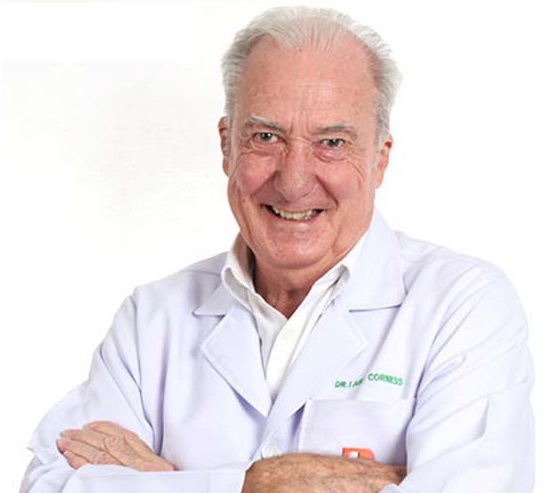 Unfortunately, despite all the advances in medicine, I have to admit that it is still somewhat of an inexact ‘science’. We do not have the cures for all ailments, in fact far from it. But we have not given up. We continue to try, to experiment and, most importantly, to test. Regular readers of this column will know that I have mentioned the acronym EBM many times. This stands for “Evidence Based Medicine” and is a key factor in modern medicine. It just means we test until we have the evidence that any drug or treatment really does work. This all takes time, as the evidence cannot just hang on one person who got better. It requires huge series, across the globe.
Unfortunately, despite all the advances in medicine, I have to admit that it is still somewhat of an inexact ‘science’. We do not have the cures for all ailments, in fact far from it. But we have not given up. We continue to try, to experiment and, most importantly, to test. Regular readers of this column will know that I have mentioned the acronym EBM many times. This stands for “Evidence Based Medicine” and is a key factor in modern medicine. It just means we test until we have the evidence that any drug or treatment really does work. This all takes time, as the evidence cannot just hang on one person who got better. It requires huge series, across the globe.
However, as patients, or sufferers of any complaint, we want that “cure” right now! Consequently, with all medical conditions where we cannot give the patient the “wonder drug” there is then a tendency for them to try something else, anything else, hoping for the relief that conventional medicine has not promised or delivered. For the musculo-skeletal conditions, for example, the “alternatives” are multiple, from magnets to mussels from New Zealand. But do they really work?
The problem with the non-pharmaceutical mainline pills and potions industry is in unbiased scientific testing. The tablets that Roche, Parke-Davis, Bayer and all that lot produce are rigorously and vigorously (viagorously?) tested. Not only do the drug companies have to show that their pills actually work, but they also have to show what side effects they can produce and whether or not they interact with other pills and potions to make explosive mixtures. The “alternative” pill and potion manufacturers have not had the same degree of scientific scrutiny.
There are those who will claim that because the remedies come from plants, that the ingredients are then “natural” and therefore OK for us humans. This is pseudo-scientific nonsense. Extracts of plants and herbs are chemicals – and some chemicals can kill, that is why wild animals can die after eating the wrong plants. So can you!
So let us look at a few of the alternative treatments and analyse just whether they are indeed efficacious. Willow Bark is one that is used for arthritis, because it was imagined that since the tree grew in damp environments, and arthritis was thought to be caused by “damp” then treatment with the bark was “logical”. The herbalists got the right answer, however, no matter how wrong the reasons! Willow Bark does have an effect because it contains salicylates – more commonly known these days as aspirin! Other “natural” sources of aspirin include poplar tree bark, black cohosh (a North American plant), pansies, violets and meadowsweet. Aspirin works!
Have you heard of Devil’s Claw? This South African plant has been studied to see if it has any anti-inflammatory action in arthritis. The small studies that have been done show no effect, but it is an analgesic (pain killer), so those people with arthritis do feel better when they take it. In fact, demand is now outstripping supply – but they would do just as well with a strip of paracetamol tablets. And cheaper too!
Another of the well touted treatments for arthritis is the green lipped mussel. According to the pundits, this form of treatment has had numerous clinical trials, and unfortunately, the same number of clinical failures! However, I believe they are quite nice steamed with garlic, ginger and shallots!
One other niggling problem with the “natural” therapies is that for musculo-skeletal problems, most of which are of a long standing chronic nature, even less scientific work has been done to see what happens when you take these medications for a protracted period of time. Until long term safety has been ascertained, I would counsel caution, and beware mixing pharmaceutical drugs and over the counter “alternatives”!
Reactions to pharmaceutical items are still reasonably rare and well documented. I cannot say the same for the “natural” remedies.
Finally, I was very amused to read of a health food shop being offered for sale. The reason the owner was prepared to sell? Ill health!
 |
 |





